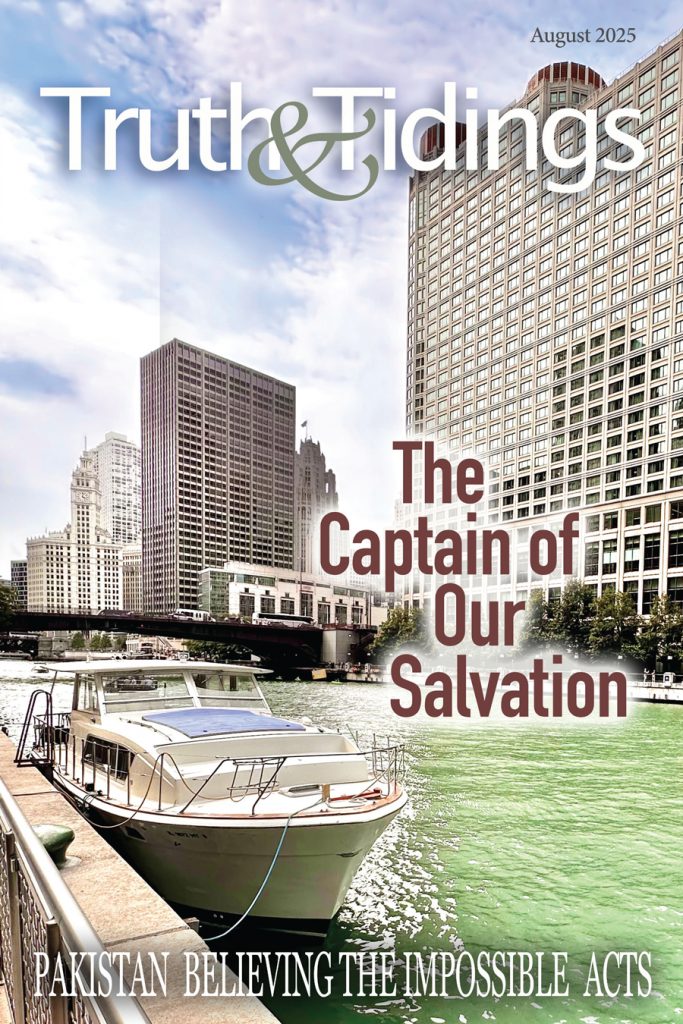The recent 12-Day War between Israel and Iran has brought an ancient prayer request back into the spotlight. “Pray for the peace of Jerusalem” comes from Psalm 122:6 and, if David is the author, is one of the oldest prayers in history. For centuries, God’s people have been heeding the psalmist’s request and are still waiting for an answer. Interestingly, Jerusalem means “foundation of peace,” yet the city’s history has known almost constant conflict.
Scripture teaches that God has set aside His earthly people Israel during this present Church Age, and that Jerusalem is no longer the place (neither is any other earthly location) where God commands His people to go to worship. Clearly, the tribes (v4) cannot go up to Jerusalem to observe the annual feasts because “the house of the LORD” (mentioned twice in the psalm) is not there to offer their sacrifices. The “thrones of the house of David” (v5) are evidently absent. No temple, no sacrifices, no Davidic King. So, are we still to offer up this prayer today for the peace of Jerusalem? How can we when so much else in the psalm seems to be irrelevant?
Our prayer for the peace of Jerusalem is not merely for the cessation of warfare and bloodshed, important as that may be. We pray for spiritual peace, both the turning of Israel to their Messiah, the Prince of Peace, our Lord Jesus Christ, that they might enjoy peace with God through Him (Rom 5:1), and the culmination of all the promises of God made to Israel through Christ. Scripture says that a national turning, a nationwide repentance and embracing of the Messiah, will occur when they look on the One they pierced at His return from heaven (Zec 12:10; Rev 1:7). Essentially, then, to pray for the peace of Jerusalem today is to pray for the return of Christ, who will establish His glorious kingdom on earth and usher in peace, not only for Jerusalem but for the world.1 The day is coming when Psalm 122:6 will finally be answered. “Jerusalem shall be safely inhabited” (Zec 14:11).
Therefore, the psalmist’s prayer is consistent with two important prayers which bookend the New Testament: “Thy kingdom come” (Mat 6:10), and “Even so, come, Lord Jesus” (Rev 22:20).
Finally, what does the end of Psalm 122:6, “May they prosper who love you [Jerusalem],” mean? Those who love Jerusalem are those who appreciate its spiritual significance for God’s future kingdom on earth. Israel and Jerusalem will play a key role in God’s purpose for this world. Israel will be the head of the nations during the Millennium when the Messiah reigns, and Jerusalem will be the location of His earthly throne (Isa 2:2-4; Psa 48:1-2). The psalmist asks the Lord to prosper the people who love Jerusalem. Whenever we love what God loves, and whenever we obey His Word (which in this case is praying for the peace of Jerusalem), He will bless us, as countless Scriptures affirm.
So, yes, “Pray for the peace of Jerusalem!”
1 The New Testament teaches the return of Christ in two stages, separated by at least seven years. The first (His coming to the air at the Rapture) will end the Church Age, and the second (His coming to the earth to reign) will inaugurate the Millennial Age. A seven-year tribulation period will occur in between the two stages of His coming.

